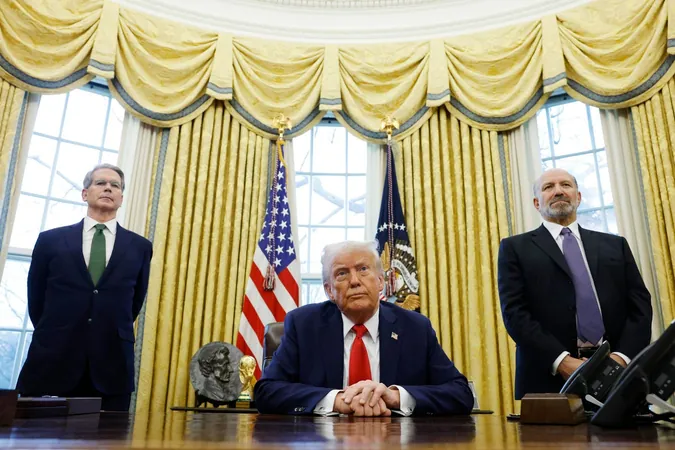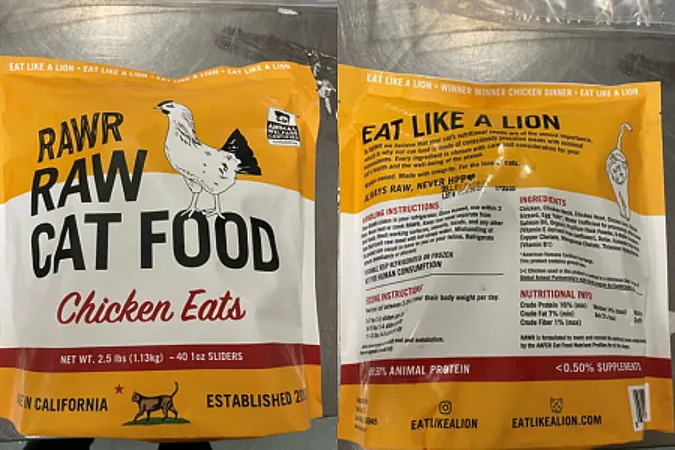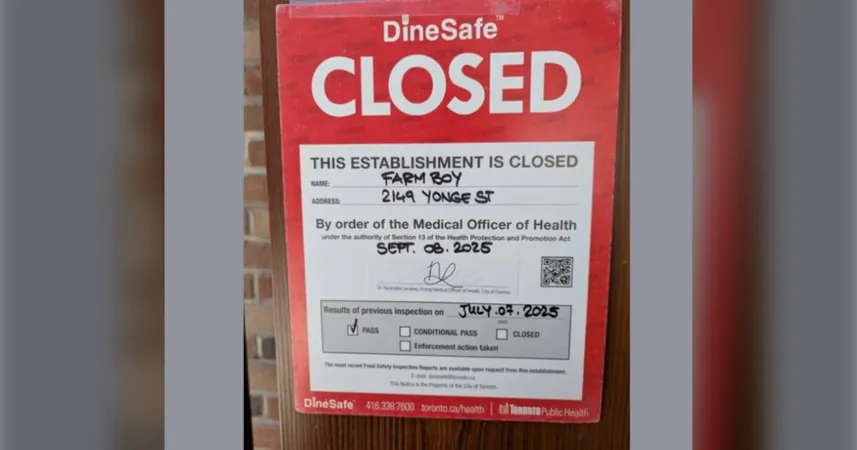
Supreme Court Showdown: The Future of Trump's Controversial Tariffs Hangs in the Balance!
2025-09-08
Author: Jacob
Major Decision Ahead!
The Supreme Court is poised to make a groundbreaking decision on the legality of President Donald Trump’s so-called "Liberation Day" tariffs, which could dramatically reshape international trade relations. If the justices strike down these tariffs, it could lead to refunds for companies and consumers who have already paid, unleashing a potential wave of financial repercussions.
What’s at Stake?
The Trump administration is urging the Supreme Court to declare its stance on the tariffs by September 10. If the Court declines to hear the case, the lower Federal Circuit's ruling— which deemed the tariffs illegal—will take effect, preventing the Trump administration from enforcing these tariffs. If the Court decides to hear it, we might see a ruling by year-end, or possibly well into June 2026 if they drag their feet.
Are Some Tariffs Safe?
The current legal battle focuses on the "Liberation Day" tariffs imposed on practically all foreign imports, along with exceptions for certain nations concerning fentanyl trafficking. However, other tariffs, such as those on steel and automobiles imposed under different legal justifications, will not be affected by this ruling.
Refunds on the Horizon?
If these tariffs are deemed unconstitutional, businesses that paid these fees could be looking at refunds. Experts predict a complicated refund process, with possibilities ranging from the government proactively issuing refunds to businesses applying for reimbursements themselves. However, the Trump administration may argue that only those who formally challenged the tariffs would be entitled to recover their costs, complicating matters further.
Consumers Could Save Big!
For the average consumer, a ruling against Trump’s tariffs could mean relief from escalating prices. The Tax Foundation estimates that the tariffs are like a tax hike of $1,304 per household in 2025 if they remain in place. Conversely, if the tariffs are overturned, that figure could plummet to just $292, sparking savings for American families. Additionally, there could be opportunities for class action lawsuits against companies that raised their prices in response to these tariffs.
Can Trump Still Impose Tariffs?
Absolutely, but under more restrictive conditions. While the sweeping powers he wielded under the International Emergency Economic Powers Act (IEEPA) face scrutiny, other federal statutes still grant him the authority to impose tariffs—albeit on a much narrower scale, typically requiring investigations and capping tariff rates.
Will Trade Deals Be Affected?
A negative ruling on the tariffs could not only affect U.S.-China negotiations but also disrupt other international trade agreements. Officials have voiced concerns that morale among trading partners could wane if they question Trump’s ability to enforce tariffs, impacting negotiations across the board. Nonetheless, some legal experts speculate that alternative legal avenues exist for maintaining pressure on trading partners.
The Long Legal Battle Continues!
The Trump administration announced these sweeping tariffs in April 2021. Since then, they have been embroiled in litigation, facing challenges from small businesses and state governments. While earlier court rulings have leaned against the legality of these tariffs, they have remained in effect during the appeals process. With the Supreme Court's involvement now imminent, the final outcome remains uncertain, but one thing is clear: this decision could reshape America's economic landscape.









 Brasil (PT)
Brasil (PT)
 Canada (EN)
Canada (EN)
 Chile (ES)
Chile (ES)
 Česko (CS)
Česko (CS)
 대한민국 (KO)
대한민국 (KO)
 España (ES)
España (ES)
 France (FR)
France (FR)
 Hong Kong (EN)
Hong Kong (EN)
 Italia (IT)
Italia (IT)
 日本 (JA)
日本 (JA)
 Magyarország (HU)
Magyarország (HU)
 Norge (NO)
Norge (NO)
 Polska (PL)
Polska (PL)
 Schweiz (DE)
Schweiz (DE)
 Singapore (EN)
Singapore (EN)
 Sverige (SV)
Sverige (SV)
 Suomi (FI)
Suomi (FI)
 Türkiye (TR)
Türkiye (TR)
 الإمارات العربية المتحدة (AR)
الإمارات العربية المتحدة (AR)